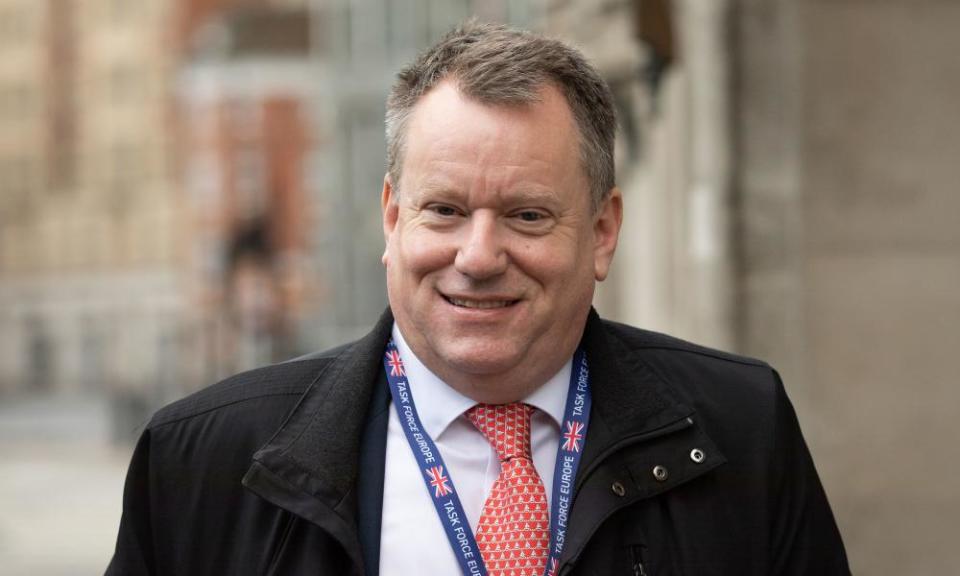Leave campaigners ‘surprised’ by decay in relations with EU, says David Frost

The deterioration in relations with the EU, partly driven by the Northern Ireland “sausage war”, has come as a surprise to those, who campaigned to leave the bloc five years ago, the government has admitted.
The Brexit minister, David Frost, said they had dreamed of a sovereign Britain, which could set forth on a global mission while maintaining friendly relations with its neighbours.
He was speaking on the eve of an expected concession by the EU to agree to the UK’s request for a three extra months to resolve the dispute over Brexit checks in Northern Ireland including those on chilled meats, nicknamed the sausage war.
In a sign that a modicum of peace may be breaking out, Lord Frost said: “It is absolutely not part of the plan to be bickering with EU and hope it isn’t part of their long term plan either.”
But he admitted that this would only happen if tensions over Northern Ireland were sorted out.
“Until we have settled the Northern Ireland issue and put in place new balances, or the right balance, I think it’s going to be difficult to get relations on to the right footing that we want, but we absolutely do want that,” he told the thinktank UK in a Changing Europe in an interview on Thursday night.
Watch: French-German plan for EU-Putin talks collapses
Frost admitted that campaigners for Vote Leave did not anticipate the impact Brexit would have on relations with the countries Boris Johnson consistently refers to as “our friends and neighbours”.
“I don’t think those who campaigned five years ago for Brexit drove the analysis, drove the politics of it. I think they are surprised, quite often, to find relations are in the state they’re in,” said Frost.
Asked if the British government had “underestimated what sort of impact” the protocol would have on the movement of goods, Frost hinted this was the case.
“I don’t see what is wrong with learning from experience. This is a very unusual agreement and we’ve learned a lot about how economic actors behave … we underestimated the chilling effect.”
A committed Brexiter, the Conservative peer said he felt the UK had experienced a “loss of will” after decades in Brussels and had become subordinate to the centralisation of laws even in areas where the UK had legal competence.
The country had “got used to not devising for ourselves” and “got lost in a mushy multilateralism” rather than “think about outcomes”, he said.
Asked what success would look like in 10 years’ time, Frost said it was a world in which “we’ve settled into a more normal relationship with the EU … one where we have gone our own way in a number of areas and succeeded … nobody is questioning Brexit. It was self-evidently the right thing to do.”
Watch: 10 ways to Brexit proof your finances

 Yahoo News
Yahoo News 